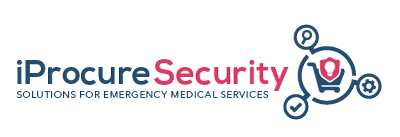
International research cooperation on a coronavirus remedy
Within the European Union
The European Commission mobilised funds to support research into the development of vaccines, treatments and medicines. It is also working with the European Medicines Agency to streamline regulatory measures (from clinical trials to marketing authorisations). In addition, it will also give priority to promoting international cooperation. To assist Member States in purchasing the necessary equipment, including testing, as quickly as possible, the Commission has also set up a “Medical Equipment Clearing House”, launched joint procurement activities and the building of emergency stocks through RescEU, and proposed to support national health systems through the Emergency Aid Instrument.[1]
Cooperation with Africa
Next to that, The European Union and Africa also stepped up their research cooperation. The EDCTP (European and Developing Countries Clinical Trials Partnership) is launching several calls to support research on the coronavirus and strengthen research capacities in sub-Saharan Africa. Three calls in total will be funded with up to €28 million from Horizon 2020. This action should bring the European Union and 16 African closer together, to fund research to combat infectious diseases in sub-Saharan Africa.[2]
The United Nations
On top of that, the United Nations mobilized a global cooperation program, to strengthen science-based COVID-19 research on multiple fronts: The partner WHO hast started the Solidarity Trial – a initiative that assesses potential treatments for COVID-19 –which has already led to 74 countries joining or expressing interest to taking part in the trial. While randomized clinical trials normally take years to design and conduct, the Solidarity Trial will reduce the time taken by 80%, according to WHO.
Next to that, the Investment and Technology Promotion Office (ITPO) in Shanghai, a branch of the United Nations Industrial Development Organization (UNIDO), partnered with the Beijing-based White Rhino Auto company to deliver unmanned vehicles to Wuhan’s Guanggu Field Hospital to transport medical supplies, deliver meals for doctors and patients, and complete other vital tasks.
In addition, the International Telecommunication Union (ITU), has been holding a series of webinars on the use of artificial intelligence. Kicking off the series, experts from the Republic of Korea shared how innovative technologies have been used to help flatten the curve in the East Asian country.[3]
Current progress
Meanwhile the Austrian Institute for Health Technology Assessment (AIHTA) has conducted research on the current developments. The 155 drugs currently tested for their effect against SARS-CoV-2 are all based on one or more antiviral agents. The vaccine candidates identified by AIHTA are live vaccines, i.e. with attenuated virus strains, inactivated vaccines containing viral proteins, or gene-based vaccines with specific DNA or mRNA. The majority of these projects are currently still in the development stage and have not yet been approved.
However, eleven drugs and eight vaccine candidates are at a particularly advanced stage of development or are regarded as particularly promising in the specialist literature.[4]
[1] https://ec.europa.eu/commission/presscorner/detail/de/ip_20_652
[2] https://era.gv.at/object/news/5262
[3] https://www.un.org/en/un-coronavirus-communications-team/un-mobilizes-global-cooperation-science-based-covid-19-responses

